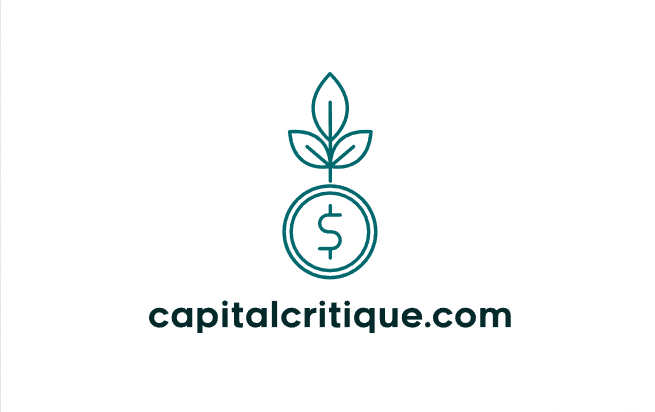The decision to buy a house is one of the most significant financial choices many people will make in their lifetime. Whether you’re a first-time homebuyer or considering upgrading to a larger property, timing plays a crucial role in this decision-making process. With fluctuating housing markets, changing interest rates, and evolving economic conditions, it’s natural to wonder: Should I buy a house now, or wait? In this blog, we’ll delve into the factors to consider when weighing this important decision.
Table of Contents
Factors to Consider
Current Market Conditions: Example: In a seller’s market with low inventory levels and high demand, buyers may face fierce competition and bidding wars, leading to inflated prices and limited housing options. Conversely, in a buyer’s market with ample inventory and sluggish demand, buyers have more negotiating power and may find better deals on properties.
Price Trends: Example: Suppose home prices in your desired neighborhood have been steadily appreciating over the past few years, indicating strong market demand and limited supply. In this case, buying now could be advantageous to lock in a lower purchase price before prices escalate further. However, if prices have been declining or stabilizing, you may opt to wait for more favorable pricing conditions.
Local Market Dynamics: Example: Consider a suburban area experiencing a surge in demand due to remote work trends and lifestyle preferences. As urban dwellers seek more space and affordability, suburban home prices may skyrocket, making it challenging for buyers to enter the market. Understanding these local dynamics can help you identify emerging trends and make strategic decisions about timing your home purchase.
Impact of External Factors: Example: External factors such as changes in mortgage interest rates, economic conditions, and government policies can significantly influence housing market trends. For instance, a sudden increase in interest rates may deter buyers, leading to a slowdown in home sales and price growth. Monitoring these external factors can provide valuable insights into future market trends and guide your decision-making process.
Forecast and Projections: Example: Real estate analysts and industry experts often provide forecasts and projections about future housing market trends based on economic indicators and historical data. For instance, if economists predict a surge in population growth or job opportunities in your area, it may indicate increased housing demand and appreciation potential. Considering these forecasts can help you anticipate market trends and make informed decisions about timing your home purchase.
Personal Financial Situation:
Assessing your personal financial situation is a crucial step in determining whether to buy a house now or wait for better opportunities. Factors such as income stability, debt levels, savings, and credit history play a significant role in your ability to afford a home purchase. Let’s delve into the details of evaluating your personal financial situation, accompanied by examples to illustrate key considerations.
Income Stability: Example: If you have a stable job with steady income growth and job security, you may feel more confident about taking on a mortgage and committing to homeownership. Conversely, if your income is variable or uncertain, such as being self-employed or in a cyclical industry, you may prefer to wait until your financial situation stabilizes before buying a house.
Debt-to-Income Ratio: Example: Lenders consider your debt-to-income ratio (DTI) when evaluating your mortgage application. A high DTI, resulting from significant debt obligations relative to your income, may hinder your ability to qualify for a mortgage or afford monthly payments. For instance, if you’re carrying substantial student loan debt or credit card balances, reducing your debt load before buying a house can improve your financial health and borrowing capacity. Check our DTI Calculator here.
Savings and Down Payment: Example: Saving for a down payment is a critical aspect of buying a house. A larger down payment not only reduces your loan amount but also lowers your monthly mortgage payments and may eliminate the need for private mortgage insurance (PMI). For example, if you’ve saved diligently and accumulated a sizable down payment, you may be better positioned to buy a house sooner rather than later, as you’ll have more purchasing power and financial flexibility.
Emergency Fund: Example: Establishing an emergency fund is essential to cover unexpected expenses and financial emergencies, such as job loss, medical bills, or home repairs. If you’ve built up a robust emergency fund equivalent to three to six months’ worth of living expenses, you’ll have greater peace of mind and financial security when transitioning to homeownership. Conversely, if your emergency savings are inadequate, prioritizing this financial goal before buying a house can provide a safety net during uncertain times.
Credit History and Score: Example: Your credit history and score influence your mortgage eligibility and interest rates. A strong credit history with a high credit score demonstrates responsible financial behavior and may qualify you for favorable loan terms. Conversely, a poor credit history or low credit score may result in higher interest rates or difficulty obtaining financing. For example, if you’ve worked to improve your credit score through timely bill payments and debt management, you may be in a better position to secure a mortgage with competitive rates and terms.
Conclusion: Evaluating your personal financial situation is essential when considering whether to buy a house now or wait for better opportunities. By assessing factors such as income stability, debt levels, savings, and credit history, you can determine your readiness for homeownership and make informed decisions aligned with your financial goals and circumstances. Remember to prioritize financial stability, savings, and responsible debt management to ensure a successful and sustainable homeownership journey.
Housing Needs and Preferences:
Understanding your housing needs and preferences is vital in determining whether to proceed with a home purchase now or postpone it for a later time. Factors such as location, property type, size, amenities, and long-term goals shape your housing decisions. Let’s explore the significance of evaluating your housing needs and preferences, supplemented with examples to illustrate key considerations.
Location: Example: Suppose you prioritize living in a specific neighborhood with top-rated schools, convenient access to amenities, and proximity to your workplace. In that case, you may be willing to purchase a house in a competitive market to secure your preferred location. Alternatively, if location flexibility allows, you might consider waiting for market conditions to improve or exploring alternative neighborhoods that offer better affordability without compromising essential features.
Property Type and Features: Example: Your preference for a single-family home, townhouse, condominium, or apartment depends on various factors such as lifestyle, family size, maintenance responsibilities, and budget. For instance, if you’re a first-time homebuyer seeking a low-maintenance lifestyle, a condominium with amenities like a fitness center and pool might align with your preferences. Conversely, if you value privacy and outdoor space, a single-family home with a backyard may be more appealing, even if it requires additional upkeep.
Size and Layout: Example: Your housing needs evolve based on family dynamics, lifestyle changes, and future plans. For example, if you’re planning to start a family or accommodate aging parents, you may prioritize a larger home with multiple bedrooms and flexible living spaces. Conversely, if you’re a young professional seeking a minimalist lifestyle, a smaller, efficiently designed dwelling may suit your needs while offering affordability and convenience.
Amenities and Community Features: Example: Consider your lifestyle preferences and the amenities that enhance your quality of life. For instance, if you enjoy outdoor activities and socializing, a neighborhood with parks, trails, and communal gathering spaces may be desirable. Similarly, if you value sustainability and eco-friendly living, look for communities with green initiatives, energy-efficient homes, and access to public transportation.
Long-Term Goals: Example: Your housing decision should align with your long-term goals, whether it’s building equity, establishing roots in a community, or pursuing investment opportunities. For instance, if you’re planning to stay in the same location for the foreseeable future and have stable employment, buying a house now can provide stability and potential appreciation over time. Conversely, if you anticipate lifestyle changes or career advancements that may require relocation, renting or waiting to buy may offer more flexibility.
Conclusion: Assessing your housing needs and preferences is essential when contemplating whether to buy a house now or postpone your decision. By carefully considering factors such as location, property type, size, amenities, and long-term goals, you can make informed choices that align with your lifestyle, budget, and future aspirations. Remember to prioritize what matters most to you and seek a housing solution that fulfills your needs while accommodating your preferences and aspirations.
Economic Outlook:
Understanding the economic landscape is crucial when contemplating a major financial decision like purchasing a house. Factors such as interest rates, housing market trends, employment outlook, inflation, and government policies influence the affordability and feasibility of buying a home. Let’s delve into the importance of assessing the economic outlook, supplemented with examples to illustrate key considerations.
Interest Rates: Example: Suppose you’re considering buying a house in a period of historically low-interest rates, like the present. Low-interest rates translate to lower mortgage payments, potentially increasing your purchasing power and making homeownership more affordable. However, if interest rates are projected to rise in the near future, waiting may result in higher borrowing costs, impacting your ability to qualify for a mortgage or afford the desired property.
Housing Market Trends: Example: Analyzing housing market trends provides insights into supply and demand dynamics, pricing fluctuations, and overall market conditions. For instance, if you’re in a seller’s market characterized by high demand, low inventory, and rising home prices, purchasing now may entail competitive bidding wars and inflated property values. Conversely, in a buyer’s market with ample inventory and softer prices, waiting could lead to better negotiation leverage and potential savings.
Employment Outlook: Example: Your employment stability and income prospects influence your ability to afford homeownership and maintain mortgage payments over time. If you’re in a secure job with steady income growth and favorable career prospects, buying a house may be a prudent investment in your future. Conversely, if economic uncertainty or industry-specific challenges pose risks to your employment situation, delaying the purchase until there’s greater clarity may be advisable to avoid financial strain.
Inflation and Cost of Living: Example: Inflationary pressures impact housing affordability by influencing prices for goods and services, including housing-related expenses like property taxes, insurance, and maintenance costs. If inflation is expected to rise significantly, waiting may result in higher home prices and living expenses, diminishing your purchasing power. Conversely, if inflation remains moderate or is projected to decrease, postponing the purchase could lead to better value and improved affordability in the future.
Government Policies and Stimulus Measures: Example: Government interventions, such as tax incentives, mortgage assistance programs, and economic stimulus measures, can impact housing affordability and market dynamics. For instance, first-time homebuyer incentives or favorable lending policies may incentivize buying now to take advantage of available benefits. Conversely, changes in tax regulations, interest rate policies, or housing initiatives could warrant waiting for clarity on how they’ll affect your financial situation and housing options.
Conclusion: Assessing the economic outlook is essential when deciding whether to buy a house now or wait. By analyzing factors such as interest rates, housing market trends, employment outlook, inflation, and government policies, you can make informed decisions that align with your financial goals and circumstances. Remember to consider both short-term opportunities and long-term implications to determine the optimal timing for your home purchase.
Conclusion
In conclusion, the decision to buy a house now or wait hinges on a careful evaluation of the economic outlook and its impact on your personal finances and housing needs. By considering factors such as interest rates, housing market trends, employment stability, inflation, and government policies, you can make a well-informed decision that aligns with your financial goals and circumstances. Whether you choose to take advantage of current market conditions or wait for more favorable conditions in the future, it’s essential to weigh the short-term opportunities against the long-term implications to ensure that homeownership remains a sound investment for your future. Ultimately, by staying informed and considering all relevant factors, you can make a decision that best serves your interests and sets you on the path toward achieving your homeownership goals.





